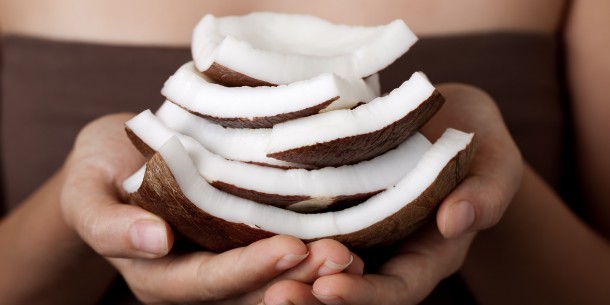
For the past few years, there has been loads of hype about using coconut oil in cooking, baking, and as part of a natural skin care regimen. Men and women alike use coconut oil for moisturizing their skin, conditioning their hair and scalps, and some people even use it for brushing their teeth!
With a product this popular, many consumers cannot resist the natural scent of coconut oil and its easy, hassle-free application process. But how can companies be sure that they are labelling their coconut oil in a safe and effective way? We’ll tell you how in this article!

Avoid Misleading Labels
While there’s no question that coconut oil is an amazing product; however, companies still need to be smart about their labelling to ensure that their products are not misleading to the consumer. Like any product on the market, not at all jars of coconut oil are created equal, and companies need to ensure that their customers are aware of that.
For example, two shoppers
sued Costco last February for making false advertising claims on coconut oil labels. The two consumers argued that Costco made false claims of coconut oil being healthier than butter and other oils, which wasn’t completely truthful.
Additionally, Costco allegedly labelled their coconut oil as being extra virgin coconut oil, but according to the
Healthy Home Economist, there is no such thing as extra virgin coconut oil. Coconut oil is either refined or virgin coconut oil, and nothing more. Companies need to be sure to steer clear of their wording on product labels to ensure that nothing they say is misleading.
How Language Misleads Shoppers
According to the
Healthy Home Economist, coconut oil products that are labelled as pure are often not pure, and are usually blended with cheap oils or other fillers.
You see, coconut oil is meant to have a long shelf life and should never go rancid, but other vegetable oils do go rancid after a certain period. If a company claims to be pure but blends their coconut oil with other vegetable oils, the product isn’t pure coconut oil at all.
What Consumers Want in a Jar of Coconut Oil
An article published by
Prevention tells consumers what to look for in a good quality coconut oil product, and which terms to avoid on product labels. For example, the article tells coconut oil users to look for products labelled as unrefined (or virgin coconut oil or cold pressed), but to avoid oil that is labelled as deodorized or refined.
Additionally, the article suggests that shoppers look for solid coconut oil rather than oil sold in the liquid form, and that organic or non-GMO bottles of oil aren’t entirely important. Instead, the article encourages consumers to look for unrefined coconut oil but to go easy on consuming too much of it since it may not be the miracle food that many advertising claims make it out to be.

The Benefits of Clear Sticker Printing
When it comes to labeling natural products such as coconut oil,
clear labels are an excellent choice. Clear product labels are the perfect addition to any natural product since clear sticker printing tends to make products look natural, clean, and as organic as the item itself.
Whether you need
glossy inkjet labels,
waterproof labels,
frosty labels, or
permanent labels—SheetLabels.com has the perfect clear sticker printing options available for any of your coconut oil labelling needs. Contact us today to get started!
 For the past few years, there has been loads of hype about using coconut oil in cooking, baking, and as part of a natural skin care regimen. Men and women alike use coconut oil for moisturizing their skin, conditioning their hair and scalps, and some people even use it for brushing their teeth!
With a product this popular, many consumers cannot resist the natural scent of coconut oil and its easy, hassle-free application process. But how can companies be sure that they are labelling their coconut oil in a safe and effective way? We’ll tell you how in this article!
For the past few years, there has been loads of hype about using coconut oil in cooking, baking, and as part of a natural skin care regimen. Men and women alike use coconut oil for moisturizing their skin, conditioning their hair and scalps, and some people even use it for brushing their teeth!
With a product this popular, many consumers cannot resist the natural scent of coconut oil and its easy, hassle-free application process. But how can companies be sure that they are labelling their coconut oil in a safe and effective way? We’ll tell you how in this article!

